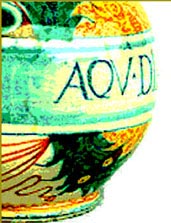| |
|
|
| |
|
|
| |
| Crèdits / Crédits / Credits |
|
|
|
|
|
METODOLOGIA DOCENT |
|
|
|
|
|
|
|
|
ADAPTACION DEL PROGRAMA DE TECNOLOGÍA FARMACEUTICA AL MODELO EDUCATIVO EUROPEO
|

|
|
|
|
Torres-Suárez, AI; Gil-Alegre, ME; Camacho, MA; Córdoba, M; Fernández, AM |
|
|
|
|
RESEÑA |
|
|
La Tecnología Farmacéutica es materia fundamental para el ejercicio profesional en industria farmacéutica, en
farmacia hospitalaria, en oficina de farmacia y en la administración sanitaria, por lo que su inclusión en futuros
planes de estudio del grado en Farmacia es incuestionable. El presente trabajo plantea la adaptación de esta materia
al EEES mediante la transformación del programa actual a créditos europeos y su adaptación a las competencias
profesionales. En el programa propuesto, las nuevas unidades temáticas corresponden al estudio individualizado de
las diferentes formas farmacéuticas detallando las operaciones básicas y los sistemas farmacéuticos implicados en
cada caso. Se describen los diferentes materiales y recursos desarrollados encaminados al aprendizaje autónomo, a la adquisición de competencias para el ejercicio profesional y a la autoevaluación por el alumno de los logros
alcanzados. Este propuesta educativa se ha implementado en la UCM sobre un grupo piloto de 26 alumnos. Además
de lograr una buena formación académica, los alumnos han desarrollado habilidades para identificar, analizar y
proponer soluciones a los problemas, habilidades demandadas en el mercado laboral y que no suelen formar parte de
los actuales programas universitarios. |
|
|
|
|
|
REVIEW |
|
|
The Pharmaceutical Technology is a fundamental subject for the professional activity in the pharmaceutical industry,
hospital pharmacy, chemist’s and Health administration. Therefore, its inclusion in future curriculum designs for
Grade degree in Pharmacy is unquestionable. The present work proposes the adaptation of this subject to HEEA
through the transformation of the current program to European credits and its adaptation to professional competences.
In the proposed program, the new thematic units are corresponded to the individual study of the different
pharmaceutical dosage forms detailing the basic operations and the pharmaceutical systems involved in each case.
The different materials and resources carried out for the independent learning, the acquisition of professional
competences and the auto evaluation of the achieved successes are described. This educational proposal was
implemented in the UCM in a pilot group of 26 students. Besides the achievement of a high academic training, the
students developed skills to identify, analyse and propose solutions to problems. These skills are demanded by the
labour market and are not present in the current university programs. |
|
| |
 |
| |
tornar al sumari |
|
|



